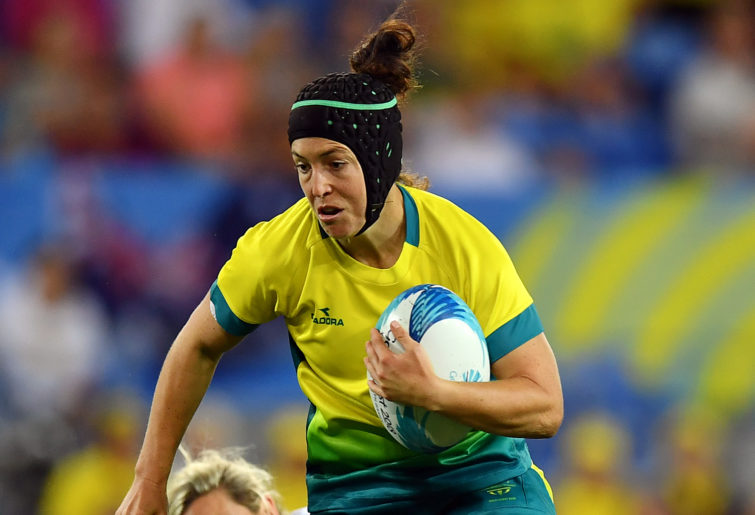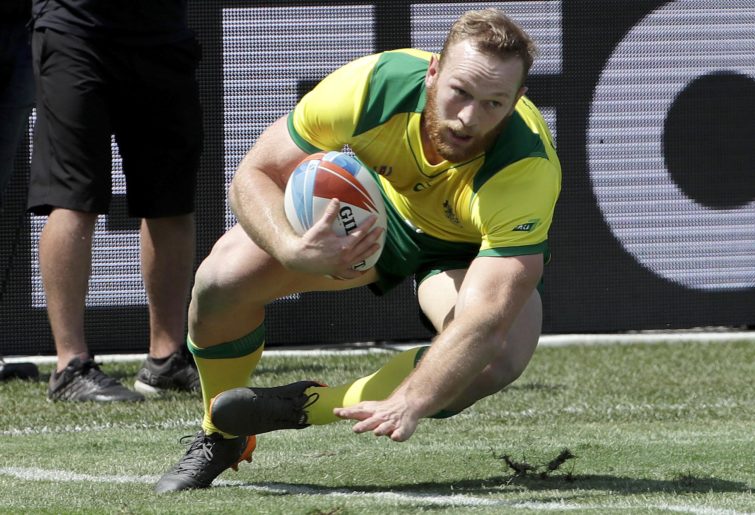EXCLUSIVE: Administrator urges private consortium be allowed to save Rebels amid claims RA won't engage
The Melbourne Rebels may have traded while insolvent for more than five years, giving rise to potential breach of director duty claims for the…
Opinion
With the COVID-19 pandemic predictably making the World Rugby Sevens Series an impossibility in 2020, fans longing for the thrill-a-minute excitement and laid-back, party atmosphere of the touring series have been forced to curb their enthusiasm until the 26th of July when the world’s best begin their battle for gold at the rescheduled Tokyo Olympics.
The shortened version of the 15-a-side game will feature for the second time following the code’s 92-year hiatus from the global sporting event.
The marketing potential of the seven-a-side format has long been noted. HSBC’s 2016 report The Future of Rugby found it the fastest-growing sport in the world and with its inclusion in the Olympics attracting an estimated 30 million fans, it has proven to be a valuable instrument in rugby’s bid to win over new supporters. The carnival-style tournament can draw in fans who might otherwise fall outside of rugby’s traditional demographic with loud music, audacious attire and wall-to-wall action.
Australia found itself experiencing a significant boost in participation following the national women’s sevens side claiming gold at the Rio 2016 Olympics. Off the back of their success rugby union saw its first increase in total participation nationwide since 2012, with national primary school program Game On jumping in participation from 9900 to 39000. That particular program catering to 60 per cent public schools, an area rugby has traditionally struggled to engage.
Speaking to the ABC in 2016, then Australian Rugby (RA) participation growth manager Cameron Tradell talked on the potential of rugby sevens to replicate the resurgence of Australian cricket through the Twenty20 Big Bash League, “Sevens has the same explosiveness around what is happening on the field, and the expectation of the unknown when you head to a sevens game is very similar to the BBL,” Tradell said.
“I think the fact it is genuinely seen as being an equal opportunity game because of the success of the girls [at the Olympics] puts us in a stronger position than cricket with regards to having so much opportunity to showcase the nuances between the male and the female game.”

Emilee Cherry of Australia. (Photo by Dan Mullan/Getty Images)
Given Tradell’s words and the building anticipation around the next Olympic appearance, one begins to wonder why moves have not been made to introduce a professional national rugby sevens competition.
The introduction of the AON sevens in 2017 proved a step in the right direction. The four-tournament series successfully bringing together Australia’s best women in a ten-team competition featuring some of Australia’s top universities from almost every state and territory. The competition has provided a clear pathway for players seeking to earn a professional contract with Rugby Australia, strengthening the national player pool and provided a platform for national selectors to prospect talent.
Yet, there has been little mention of such an equivalent for men despite new broadcast partner the nine network signalling their interest. Surely with the proven growth and inherent marketability of rugby sevens, it must be time to start discussing how we can expand the game. Australia has the opportunity to pioneer a whole new market beyond the rugby crowd and reach out to would-be fans who may think of rugby as too boring or complicated and show them what our sport is really about.
With the backing of a willing broadcaster keen to show off their newest jewel and hopefully another successful Olympic campaign, now is the time to put the wheels in motion on a platform that will showcase our top rugby sevens talent on our screens and at our stadiums. The infrequent nature and geographical limitations of the World Sevens Series can no longer cater to the growing appetite for all-day action, costume coordination, day drinking and Sweet Caroline sing-alongs.
The option to play in summer makes the prospect all that much sweeter. Not only do the sunny days provide suitable conditions for a good time, they also present the opportunity to catch the hungry eyes of cross-code fans. The tournament setups lesser need for long-term commitment along with the emphases on entertainment and lower bar of law comprehension could help draw in those bored fans.
On top of helping rugby expand into the markets of other codes, sevens could also aid in rugby’s bid to win support outside of its traditional heartlands. A conquest that has proven difficult for Rugby Australia in recent years could be simplified with sevens’ lower requirement for talent depth and limited need for travel.
One could safely assume that providing a platform and exposure to players who might normally fall outside of the scope of elite rugby, like those outside of traditional heartlands and players on the fringes of rival codes, would translate to increased participation. Paving the pathway for the next Maurice Longbottom.
Rugby Australia, through the success of Super Rugby AU and despite the now-defunct status of the National Rugby Championship (NRC), have proven that they can, at least structurally, sustain a competitive national competition. Though little can be said for the marketability of the ladder, RA now with the backing and brains of the nine network media machine has the means to put together an enticing and potentially profitable product.
For too long Australia has treated rugby sevens as little more than a feeder to the 15-man code. Our national men’s side has suffered from chronic inconsistency, with top players being plucked away to train with Super Rugby sides, forcing the introduction of players with limited sevens experience.

Australia’s Boyd Killingworth. (AP Photo/Jeff Chiu)
While perhaps the proposed national club championships or any other such form of NRC replacement should, rightfully, be the priority. The potential reach of rugby sevens could very well put it on equal footing to the proposed state of union, Queensland vs New South Wales representative match up that some consider to be too contrived.
Even if the reality is a long way from now, we can continue to expose the public to the game of rugby sevens and all its chaotic glory. If a male equivalent to the AON Sevens is for whatever reason considered unfeasible, at the least a more coordinated front is needed to display the top domestic male sevens talent in Australia on a regular basis, keeping one eye on moving the operation to the next level.
We must wake up to the potential of rugby sevens and harness its growing power. While I understand that money may be tight at RA headquarters at present and I’m aware of the time and money necessary for a proposal like this, whether they roll the dice or play it steady, the rewards could prove to be numerous.
I’ll turn it over to you guys now. Let me know what you think of the idea and how it might look.